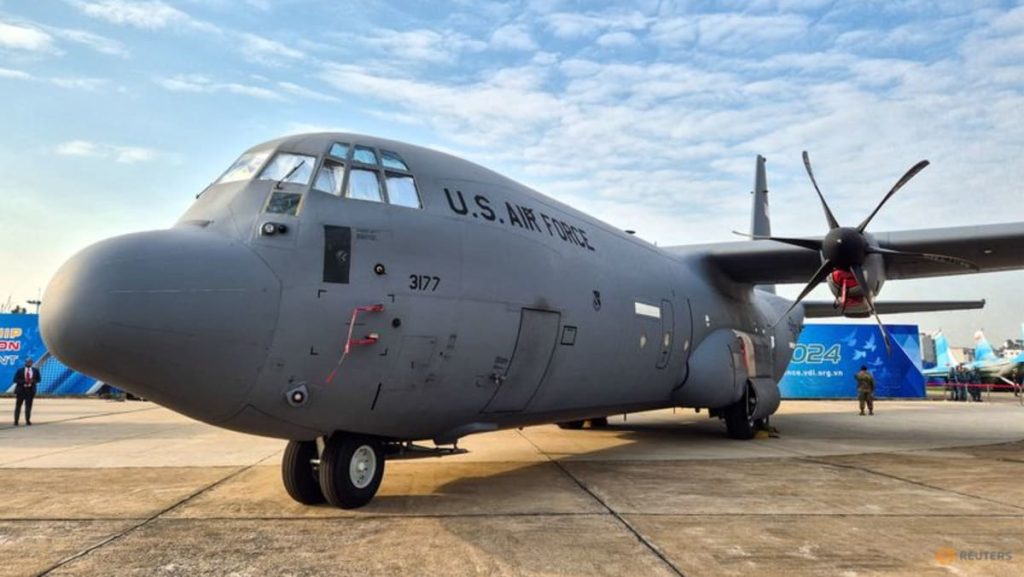Vietnam’s second international arms fair, held in Hanoi from December 19th to 22nd, 2024, served as a platform for the nation to articulate its evolving defense strategy and explore potential partnerships with global arms manufacturers. Prime Minister Pham Minh Chinh emphasized Vietnam’s commitment to peace and cooperation, framing the expo as a symbol of these principles. He reiterated the country’s “four no” defense policy, which centers on non-alignment, rejecting foreign military bases, and abstaining from the use of force in international relations. This policy underscores Vietnam’s commitment to maintaining its sovereignty and pursuing peaceful solutions to regional disputes. The event attracted nearly 250 exhibitors from a diverse array of countries, including major powers like the United States, China, and Russia, as well as nations like Britain, Iran, and Israel, reflecting the wide-ranging interest in Vietnam’s growing defense market.
The presence of major US defense contractors like Lockheed Martin, Boeing, and Textron Aviation Defense underscored the burgeoning defense relationship between the United States and Vietnam. US Ambassador Marc Knapper highlighted the potential for collaboration in joint production and technology transfer, signaling a deepening of ties beyond mere arms sales. He emphasized the US’s commitment to equipping Vietnam with the necessary capabilities to defend its interests across various domains, including maritime, air, land, and cyberspace. This commitment aligns with the growing strategic importance of the Indo-Pacific region and the US’s broader strategy to counter China’s increasing assertiveness in the South China Sea. The potential sale of Lockheed Martin’s C-130 military transport plane, currently under discussion, serves as a tangible example of this growing cooperation. The presence of high-ranking US defense officials further emphasized the strategic importance of the US-Vietnam defense relationship.
Vietnam’s strategic balancing act was evident in the diverse representation at the arms fair. While exploring closer ties with the US, Vietnam continues to maintain its long-standing relationship with Russia, its traditional arms supplier. This delicate balancing act reflects Hanoi’s aim to diversify its defense partnerships and avoid over-reliance on any single nation. The presence of both Western and Eastern arms manufacturers at the expo highlights Vietnam’s pragmatic approach to defense procurement and its commitment to leveraging international relationships to enhance its defense capabilities. This strategy allows Vietnam to maintain a degree of autonomy in its defense posture while navigating the complex geopolitical landscape of the region.
The expo also provided an opportunity for Vietnam to showcase its growing domestic defense industry. While still heavily reliant on imports, Vietnam is increasingly focusing on developing its own defense capabilities. This emphasis on self-reliance aligns with the broader trend of countries in the region investing in domestic arms production to reduce dependence on foreign suppliers. The expo likely served as a platform for Vietnamese defense companies to showcase their products and explore potential partnerships with international counterparts, fostering technological exchange and contributing to the long-term development of Vietnam’s defense sector.
Vietnam’s evolving defense strategy is driven by several key factors, including the ongoing territorial disputes in the South China Sea. China’s increasingly assertive actions in the region have heightened concerns among its neighbors, including Vietnam, prompting them to bolster their defense capabilities. The arms fair offered Vietnam a platform to assess the latest military technologies and explore potential acquisitions to address these security concerns. The pursuit of advanced military hardware and partnerships with major defense powers signals Vietnam’s resolve to protect its sovereignty and maritime interests in the contested waters.
Looking ahead, Vietnam’s defense policy is likely to be characterized by a continued emphasis on modernization and diversification. The country will likely continue to seek partnerships with a range of international actors while simultaneously investing in its domestic defense industry. This approach reflects Vietnam’s commitment to maintaining a credible defense posture in a rapidly changing security environment. The arms fair served as a crucial juncture in Vietnam’s ongoing efforts to strengthen its defense capabilities and solidify its position as a key player in the Indo-Pacific region. The discussions and potential deals emerging from the expo will shape the future of Vietnam’s defense strategy and its role in regional security. The commitment from the US to maintain its policy towards the region, regardless of the upcoming change in administration, provides a degree of stability and predictability for Vietnam as it navigates these complex dynamics.

